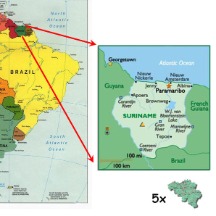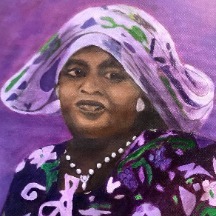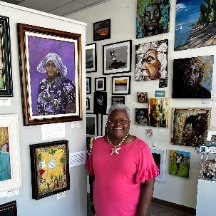The Honoree
Sophie Redmond was a doctor with her own practice in Paramaribo, the capital of Suriname. She often wore a koto, the African-Surinamese traditional dress. Her work was mostly in Sranantongo, an English-based Creole language.Many called her datra fu pôtisma (doctor of the poor). She also gave advice on marriage, family, and financial issues. During her weekly radio show, “Datra, mi wan aksi wan sani” (Doctor, I have a question), she discussed health, hygiene, the household, and current social issues. She acted in and wrote plays, often using them to educate the audience on topics ranging from elections to blood transfusions. There is a street named for her in Paramaribo as well as a lecture series in Amsterdam.
Suriname
After the abolition of slavery in 1863, Chinese were contracted to work the plantations, followed by Indians, and Javanese. Consequently, the Surinamese population has a very diverse composition with about 27.4% people identifying as Hindus, 17.7% Creoles, 14.7% Maroons, 14.6% Javanese, 12.5% Mixed Race., 6.5% Other groups, and 6.6% no data. In 1954 Suriname was recognized by the Netherlands as an overseas territory and later into the Kingdom of the Netherlands. On November 25, 1975, Suriname became an independent republic: Republic of Suriname.In 1854, the U.S. Congress drew up the Ostend Manifesto, which essentially was going to force Spain to sell Cuba to the U.S. or face military invasion. If it had not been for the internal conflicts in the US that demanded balance between free and slave states, the US probably would have found a way to purchase or annex Cuba and make it a state.









